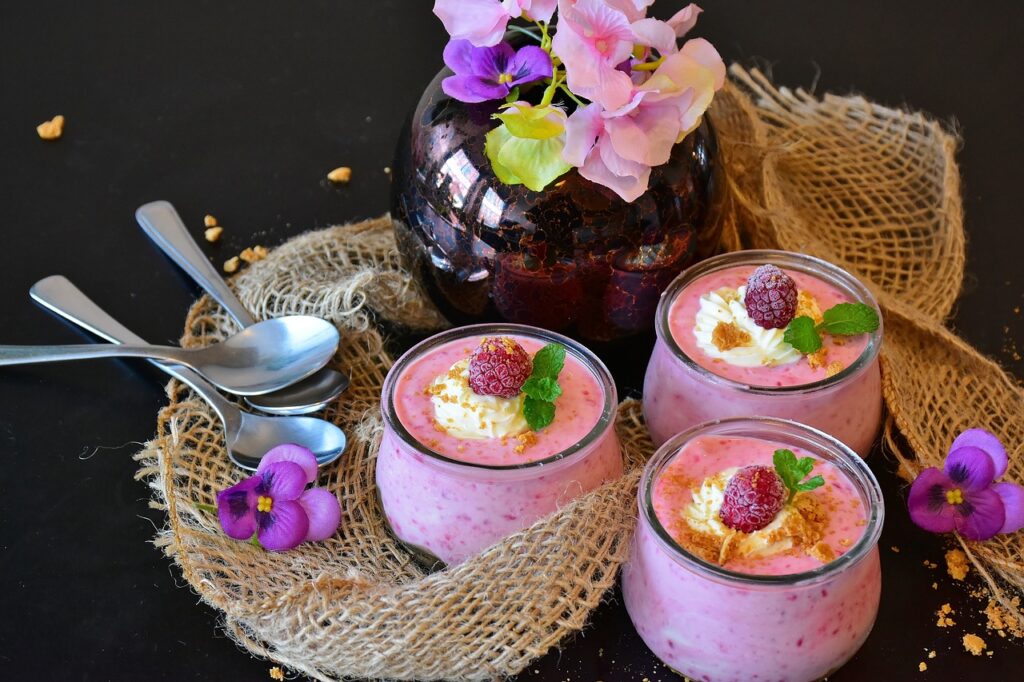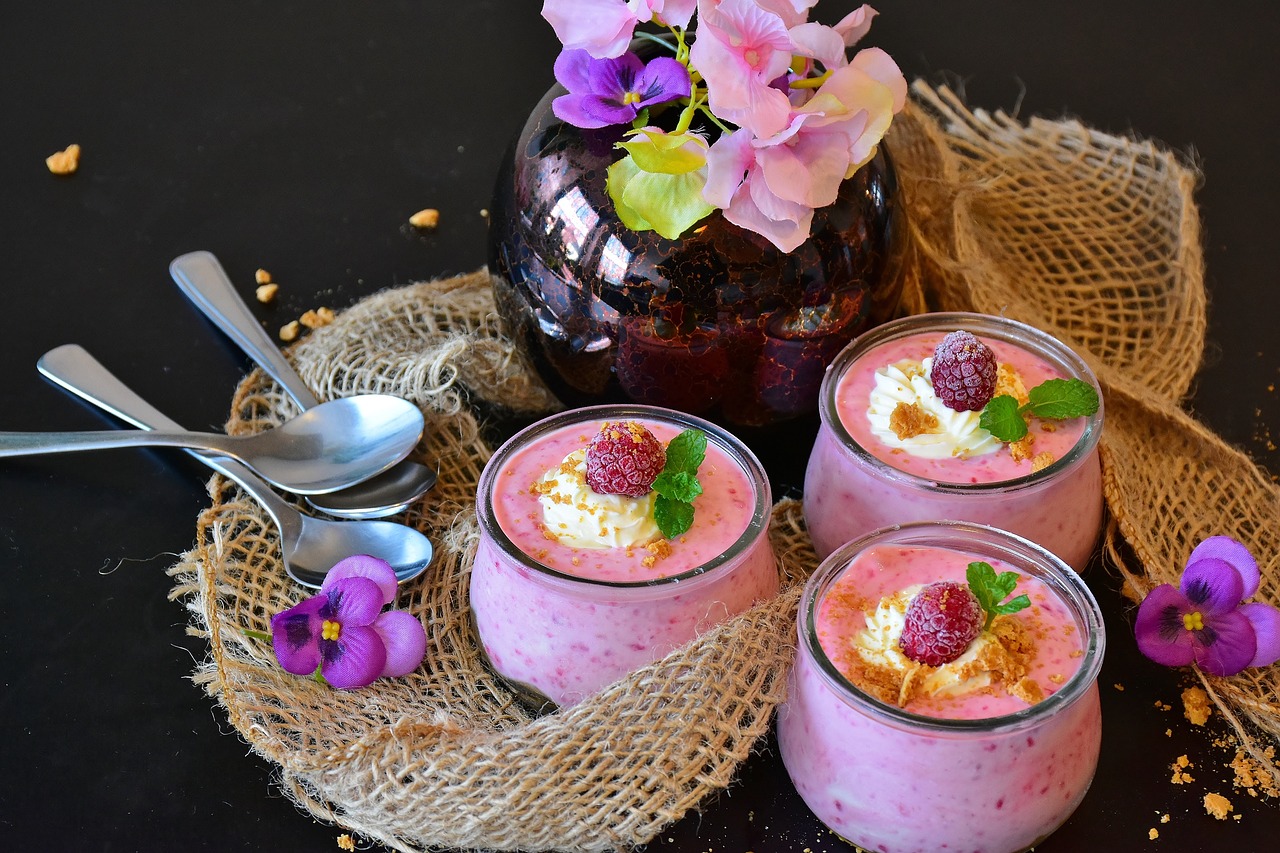Introduction to Food chemistry:
Food chemistry is called “Viruddha Ahar” in Ayurveda. It is a unique concept that talks about food to food interactions and food-processing interactions. And food that is a wrong combinations has been processed incorrectly, is consumed in an incorrect dosage or at the wrong time of the day or season can have a toxic effects on your body. They lead to an accumulation of what is called “ama” in Ayurveda or poison.
We all know, Fruits are very nutritive, but some combination we must avoid with fruits to get more nutrients from it. Let’s start.
In food chemistry, While there isn’t a one-size-fits-all guide to food combinations to avoid, some people may experience digestive discomfort when combining certain foods. For instance, mixing high-starch foods with high- protein foods might lead to bloating for some. It is essential to pay attention to your body’s response and consider factors like personal tolerance, allergies and individual digestion patterns.
Food combinations:
Food combinations that people may want to be mindful of vary based on personal tolerance and digestive health. The biggest mistake you are making with your fruits is mixing them with other food groups. It is the leading cause of skin disorder, such as psoriasis, eczema and urticaria.
In food chemistry, we must know about compositions of fruits. Most fruits certain active acids like malic acid, tartaric acid, folic acid, oxalic acid, ascorbic acid, citric acid and active microbial enzymes. Some fruits like melons contain complex acids like tetrdecanoic acid, pentadecanoic acid, hexadecanoic acid, heptadecanoic acid, octadecanoid acid and eicosanoic acid, which aid the digestion process. But these fruit acids react quickly with the acids and enzymes found in other food groups. These are the combinations you must definitely avoid.

Fruits and dairy:
One of the deadliest combinations about food chemistry is fruits mixed with dairy products like milk, yogurt and cheese. Dairy products contain lactic acid, which reacts with fruit acids leading to a chemical reaction inside our gut that damages the gut lining and causes leaky gut syndrome. It can lead to this toxic by-product entering our bloodstream, where it can deposit in various organs, especially under the skin.
Citrus fruits and dairy:
When Citrus fruits like lemon, tomato, oranges and pineapples are mixed with dairy (milk, yogurt or cheese), they cause the milk to coagulate. They can lead to gastric issues and heartburn. These fruits are acidic in nature and are a rich source of vitamin C. They can react with the lactic acid found in milk. That is why pasta sauce with tomatoes and dairy-based cream or cheese gives discomfort to many, especially those who are pitta dominant.
Melons and dairy:
Milk is laxative in nature and melons are diuretics. Therefore it causes a clash of actions in your stomach and can lead to severe indigestion, IBS and chronic diarrhea symptoms. The stomach acids required to digest the melons will cause the milk to curdle and cause gastric issues. Your body produces different digestive enzymes based on the kind of foods you have consumed. So it is best to eat Malone separately and non mix with them with other fruits either.
Melons contain bioactive compounds such as carotenoids, amino acids, vanillic acids, ascorbic acids and trans-cinnamic acids. They react with the lactic acid found in milk. In fact, melons react sharply with other fruit groups also, and can cause indigestion, IBS, reflux and other symptoms. It’s best to eat melons separately with an hour’s gap from other meals.
Sweet fruits and dairy:
Apples and bananas too do not mix well with milk. Bananas and milk are a very heavy combination to digest. They can cause fatigue and sluggishness in the body while you are trying to digest it. But if you must have a banana milkshake, add a pinch of cinnamon or nutmeg powder to promote digestion.
It is best to avoid giving children banana milkshakes. They aggravate kapha symptoms such as mucus build-up, colds, coughs, sinusitis, asthma, hay fever and allergies. Apple and milk are also an unhealthy combination. Apple contain active enzymes, malic acid and citric acid, which react with the lactic acid found in milk. They also start to oxidize on exposure and turn black. You do not want to put this combination in your tummy. It is always better to chew fruit and drink the milk separately after an hour’s gap.
Fruits with vegetables, grains, pulses and meat:
Fruits require only one hour in the stomach for digestion. 1 hour in the small intestine for absorption and assimilation of nutrients and 1 hour in the large intestine. But vegetables require twice the amount of time. And grains required three times the amount of time to fully digest, absorb and assimilate in our stomach, small intestine and large intestine. So when we mix fruits with complex food groups like vegetables and grains, it stresses the digestive system. Often the undigested vegetables and grains keep the fruit longer than needed in the stomach.
They cause the fruit acids to react with the stomach acids. This can trigger reflux, burning sensation and even ulcers in the long run. Or when you eat fruit after a heavy meal, the easily digestible fruit pushes the undigested vegetables and grains into the small intestine. They cause bloating and fermentation of the undigested foods and thus gases.
Fruits with nightshades:
Fruits like cucumber and melons react with nightshades such as tomatoes, potatoes, eggplant, peppers, goji berries and cherries, as they have conflicting properties. Nightshades contain alkaloids that react quickly with the malic acid found in cucumbers and the fruit acid found in melons. Even though the tomato is botanically a fruit, it is a vegetable in the culinary world, as it digest in its cooked form. Alkaloids found in tomatoes can impact the gut lining when consumed excessively in their raw form.
Cucumber with melons:
Cucumber is a rich source of cucurbitin, which is mild anti-diuretic, whereas lemon is citric and diuretic. These are opposite qualities that can clash in the stomach and cause indigestion and burping.
Fruits and meat:
This is a poisonous combination in food chemistry and is a strict NO. Meat takes over 72 hours to fully digest by the body. And the presence of easy to digest fruits will cause indigestion and severe gut issues in the long run.
Food chemistry, You can have fruits, either raw, stewed or in juice form, but eat fruits by themselves as a separate meal. Ensure that you keep a 2 hour gap after a solid meal before eating fruit. And if you have eaten fruit, wait an hour before eating other foods. Even within fruits, it is best not to mix them together.
Conclusion:
In conclusion, understanding the principles of food chemistry is crucial for making informed choices about dietary combinations. When it comes to fruits being mindful of incompatible food pairing can contribute to better digestion and overall well-being. By steering clear of certain combinations, people can optimize the nutritional benefits of fruits and promote a healthier lifestyle. To get more insights about fruits, how to eat fruits, when to eat fruits, read my latest book, The Magical ways for sparkling lifestyle.


Leave a Comment